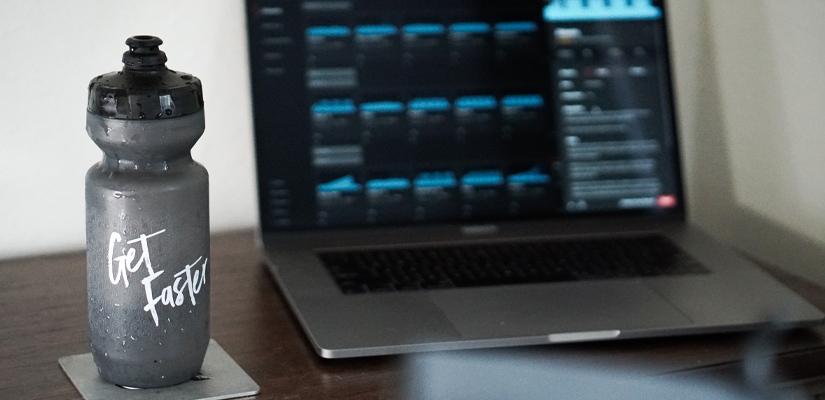How to Turn Hard Work Into Results with Recovery
When you think of training, do visions of health and fitness come to mind?
Most likely they do, and for good reason. Consistent exercise and training obviously offer many health benefits. But for many athletes, it also carries the risk of going too far, actually damaging muscles and cells, and causing fatigue and chronic soreness.
In fact, most serious athletes have experienced one or all of the following after intense training: lingering and/or intense hunger, prolonged soreness, significant fatigue, and heavy legs in subsequent training.
At best, these are short lived and do not impair performance. At worst, all of them strike at once and last much too long to continue to improve in training in the week ahead.
If you’ve been there or fear you will soon (towards the end of the season, the risk is greater), don’t despair because there’s help: proper recovery nutrition.
Of course, no matter what you do, if you’re pushing your muscles, you will experience some soreness and fatigue. But, it shouldn’t routinely impair further training.
One of the best habits any athlete can get into is to provide the body, muscles, and cells with much needed nutrients as soon as possible after training.
Three Basic Nutrients for Recovery are:
Carbohydrates
This macronutrient replenished the glycogen in the liver and muscles that’s been used up in training.
Any athlete who’s main goal is performance (rather than fat loss) should aim for .25-.50 grams of carbs per body weight as soon as possible after training.
With intense training or session >90 minutes, I recommend a recovery snack with these carbs in addition to regular meals/snacks.
If less intense, shorter, or with fat loss goals in mind, an athlete can use a normal meal/snack as the recovery as soon as possible after training.
Protein
Protein helps repair muscle cells, build muscle cells, and provide the body with nutrients to burn rather than its own muscles.
Ten to thirty grams of protein as soon as possible after training can improve recovery.
What’s more, a combination of slow-acting proteins (like casein from dairy, soy and proteins in meats) and fast-acting proteins (whey from dairy or albumin from eggs) can improve immediate and long-lasting muscle retention.
Fluids
It’s important to crawl out of a dehydrated state as soon as possible after training.
A good rule of thumb is 16-32 ounces fluid per hour training during and immediately after.
During the Spring and Summer, error on the high side and aim for 20 ounces per hour during training and another 12 oz. per hour immediately afterwards.
And now, you can take it a step further.
My work with hundreds of serious endurance athletes, specifically on training and recovery, has led me to recommend these recovery ingredients with complete confidence.
Three Advanced Recovery Nutrients include:
Probiotics
These healthy gut bacteria do more than keep you regular.
Athletes can experience two important benefits when they are added to recovery:
- The bacteria improve the immediate digestion and absorption of the other nutrients in recovery allowing them to be deliver to muscle cells faster.
- Probiotics specifically improve the immune function in endurance athletes, especially in regards to chronic colds, mononucleosis and fatigue associated with over-training.
Try adding lactobacillus from yogurt, kefir or supplements to recovery and daily eating.
L-Glutamine
L-glutamine is an amino acid used by the gut cells and skeletal muscles cells.
While sedentary people likely receive adequate l-glutamine through regular protein foods and the constant breakdown/repair of muscles, athletes often become deficient due to their high skeletal muscle demands.
Supplementing l-glutamine in recovery can significantly reduce soreness and shorten recovery duration.
Simply add 5 grams (from a supplemental powder) to your recovery meal or snack.
Ginger
This natural Superfood is loaded with anti-inflammatories, antioxidants, and phytochemicals in abundance, all which contributes to optimal cell recovery.
What’s more, ginger’s been known traditionally to reduce joint pain and improve joint health.
In recent years, studies have shown that it’s also effective in reducing muscle soreness in athletes before and after training. In fact, in one study, participants took either 2 grams ginger or placebo each day for several days before strenuous exercise with the ginger participants experiencing a 25% reduction in soreness compared to the placebo participants.
To get enough ginger for ongoing recovery, choose 4 ginger pill supplements per day (check out the label, but most are 500 mg each), 2 teaspoons of fresh ginger each day, or 1/4 teaspoon ground ginger.
Consistent optimal recovery will make a difference in your training and overall sense of well-being as an athlete.
Don’t skip it. Instead plan ahead and have a great recovery snack waiting for you when you return after a great run, ride, hike or climb.
Put all 6 recovery ingredients together in this simple and effective Optimal Recovery Smoothie Recipe
- 1 cup frozen tart cherries (berries or other fruits are also okay)
- 1 cup organic plain yogurt or 1 scoop protein powder
- 5 grams l-glutamine
- ¼ tsp. ground ginger OR 1 Tbsp. fresh ginger
- 1 Tbsp. organic honey
- water/ice as needed for desired consistency

